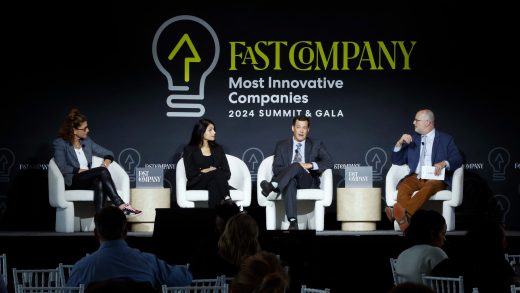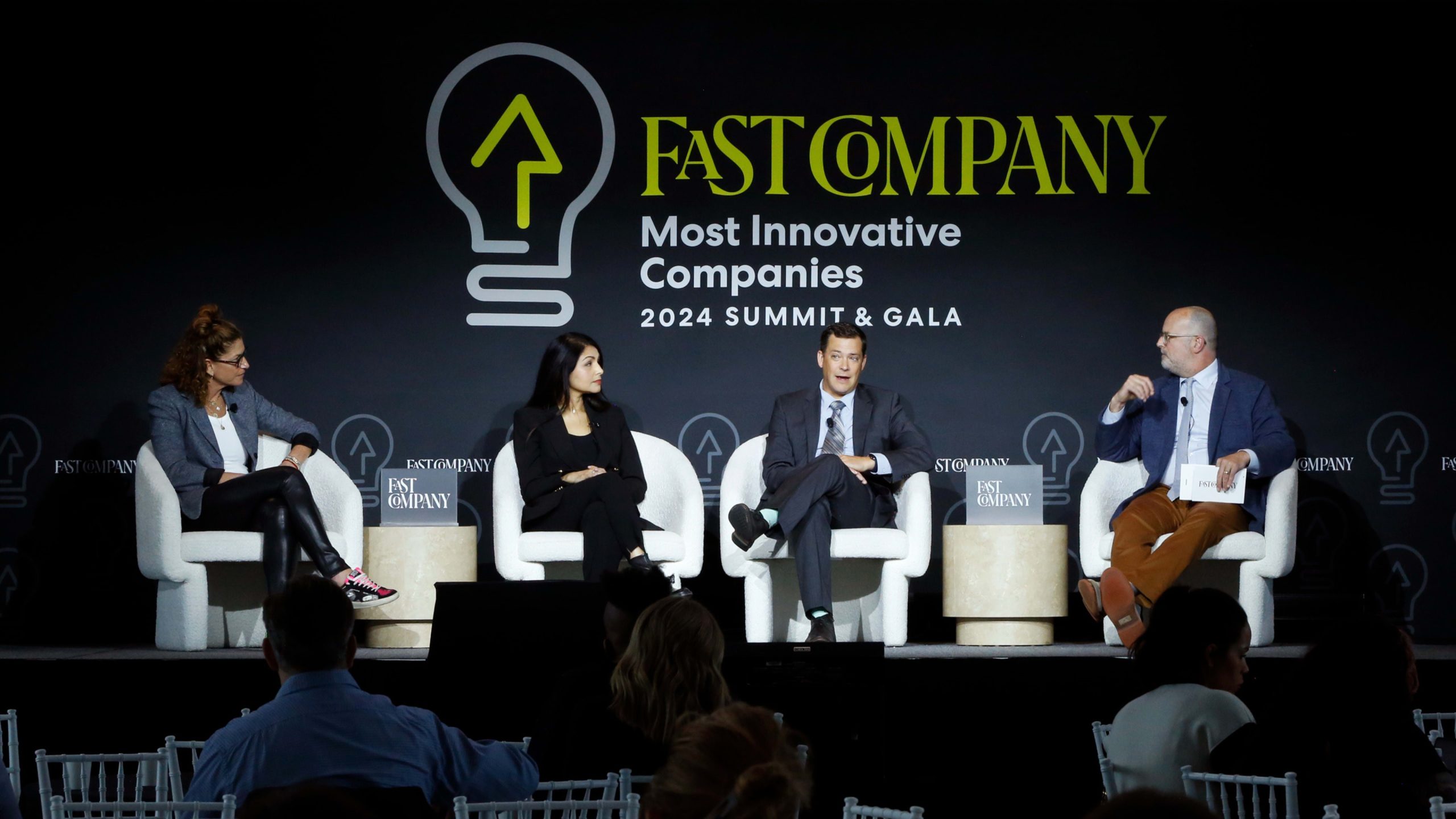What does it mean to be an innovative company?
What does it mean to be an innovative company?
At Fast Company’s MIC Summit and Gala, executives Deloitte, Pivot Bio, and Pfizer laid out what innovation means to them.
Last week, Fast Company hosted its annual Most Innovative Companies Summit, bringing together business leaders across sectors to celebrate those championing innovation in their respective industries.
But what does it mean to be innovative in 2024? Deborah Golden, U.S. chief innovation officer at Deloitte; Payal Sahni, chief people experience officer at Pfizer; and Karsten Temme, cofounder and chief innovation officer at Pivot Bio, took to the stage to explain what innovation means to them.
Partnership over disruption
Collaboration among organizations and across industries is on the rise, according to the 2023 Survey of Innovation Excellence, a special report from Fast Company and Deloitte. Those relationships span from interpersonal connections to global ecosystems.
Sahni offered an example of one such partnership between Pfizer and Zipline, a drone delivery service that was number 36 on this year’s MIC list. “Part of our job is to get medicines to places and people that don’t always have access,” she said. “When you look at places in Sub-Saharan Africa that are very difficult to get vaccines to, we partnered with Zipline to get those products there and had somebody waiting on the [other] end.”
At Pivot Bio, Temme said farmers expect the company to go beyond simply providing new offerings—they want to know how Pivot’s products can be used in conjunction with others on the market to achieve an optimal outcome.
“The question I’m most often asked by farmers these days isn’t, ‘prove that your product works. Prove that I should use it on my farm.’ It’s, ‘help me think about the future of fertilizer differently. Help me think about how I use this innovation that’s disrupting everything for me in collaboration with all those other products that are on the market,’” he said. “Everything we’ve got to do as a company now is through this lens of partnering, and not just disrupting anymore.”
Understanding long-term goals
Not every company can move—nor needs to move—at the same pace, as capabilities vary by industry, Golden explained. What’s important is “making sure that your vision [is] very purposely tied to what your long-term values [are].”
For Temme, that means staying focused. When it comes to innovation, it can be much easier to say yes to novelty. But getting caught up in pursuing newness can be a distraction from an organization’s overall mission.
“What I’ve found is our challenge is, how do we create that space for innovation to happen? How do we find ways to say no to all the different possibilities of things that could be shiny objects, so that we can be even more ambitious with that destination or that journey to the destination?” he said.
But staying true to a company’s mission doesn’t always mean moving slowly. Sahni said that it was necessary for Pfizer to act quickly during the COVID-19 pandemic to expedite the process of creating a vaccine, and the speed at which the company operated was crucial to its long-term mission.
“People were dying all around us, and we had amazing scientists that said, ‘We can’t stand for this anymore.’ So galvanizing very quickly and categorizing, what are the things that are sacred and [we] would never put at risk? That’s patient safety for us,” she said. “We actually have a north star: ‘Time is life.’ And so the extra days that we take or [that] a process takes, that’s one less week that a patient has to live or is waiting for the medicine.”
Embracing AI in the right ways
In 2024, innovation and AI go hand-in-hand. But Golden believes people are over-indexing on the technology and should think beyond AI’s ability to increase operational efficiency.
“When you think about the exploratory value of AI, that is where we should be spending 99% of our time: exploring [the] market,” she said. “The real value is being able to actually now go create net new businesses that we never thought imaginable and actually have that crossover capability. So in areas like agriculture, [we can] allow space technology and space data to be able to solve for agricultural problems that we would’ve never been able to do if not for things like AI.”
ABOUT THE AUTHOR
(20)



